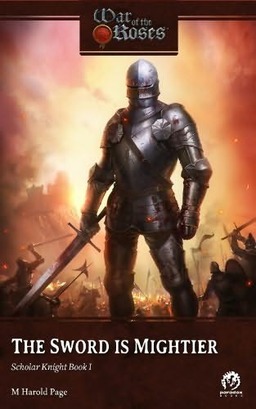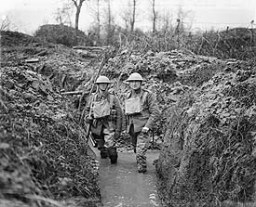Some Writing Advice That’s Mostly Useless (And Why)

I’ve been spending time on writing forums — a substitute for actual work while convalescing from an operation — and… well, I’ve noticed embedded in the culture are several pieces of advice that aren’t very useful for novice writers.
Rather than stringing them out into a series, I’m going to blast through them here:
“Work on Your Motivation” — Mostly Useless
Listen. I had a gig writing novels tieing into video games.
Great games. Great gig. But rather than going, “Brilliant, an excuse to play online warrior all day!“, I had a go at them, then handed each off to my son for a thorough exploration (a chore he greatly enjoyed, though being something of a sniper, he got regularly kicked from servers).
I like video games — I’m playing through Mass Effect at the moment — but I like writing better.
See where I’m going with this?
Nobody ever posts online, “How do I motivate myself to complete Halo 3?”
Video games are automatically fun out-of-the-box, because the challenge is the game itself, not the business of getting around inside the virtual world; most games even have similar key bindings (e.g. awsd). So if writing is not as much fun as gaming, then it’s probably because you’re still struggling with the basics of writing rather than wrestling with storytelling.
Therefore if motivation is a problem for you, work on your craft. Success breeds success.
(Exception: Some professional writing tasks do require self-discipline and motivation. One your novel is done, there’s editing, preparation of submission packages, researching agents and editors, possibly revising on their say so, and so on. These are, however, all problems that are nice to have and not novice ones.)
“Revise, Revise, Revise” — Overemphasis
That’s what a friend — who used to write comics — advised when I told him I had my first professional writing gig.
I replied, “No, outline, draft, revise.” Five novels later, I stand by that.
Somebody more recently pretty much described revision as the (drum roll) “Secret of Good Writing”.
I guess they were kind of right. You do, of course, need to revise your work. That’s part of the job. However the professionals I know all describe it as a process that moves forward, typically: story draft, plot edit, prose edit. So though it’s a vital part of the process, it’s no more the secret of good writing than “Being Able to Type at Least With Two Fingers”.
For the novice, endless revision is a trap.
You know how rabbits and foxes never have a stable population? (Foxes breed but in doing so all but wipe out the rabbits and die off. Rabbits breed freely in the fox free environment, until the fox population recovers. Repeat.) It’s a bit like that for a book that doesn’t quite work. You can go round and round in circles…. Bump up the description and the pacing falls apart… Speed up the pacing and the plot stops making sense… The truth is that the prose is just a skin. What gives it its shape are the bones and flesh beneath; the structure, meaning, really, the actual Story. That’s what gives prose an anchor to make it good.
So, OK, you will have to revise your novel once it’s done. However, if you find yourself endlessly revising, the chances are you need to revisit things like the plot.
“If You Are a Good Writer You Will Be Angsty and Probably Have a Chaotic Life” — Toxic

Thankfully, writing forums mostly call people on it, but this toxic meme is alive and well on the Internet, e.g in that stupid De Niro quote (see left).
Let’s deal with the angst — crippling self doubt, depression and other related mental health issues — first.
It’s true that some successful writers are angsty. However, a proportion of the entire human population is angsty, so writers, who can afford to be open about such things, are probably just more visible. (And yes, perhaps angsty people are more drawn to writing — I’ll grant you that.)
However, personal angst usually gets in the way of productivity and is something people have to wrestle with in order to move forward. Deliberately embracing your angst is like shooting yourself in the foot so you can heroically overcome the injury in order to run a marathon; a bit weird, when you think about it.
It’s also true that literary projects can generate angst, especially when the pressure is on, e.g. to top your last book. However, the angst is just the byproduct of being in a high-performance situation. Being angsty about your work won’t make you a good writer. Mostly it will just make you annoying.

A chaotic life is also traditionally a marker for a creative person — Hollywood loves the bottle-waving writer with the messy love life. This is puzzling because almost all the professional authors I know have well organised and tranquil home lives.
Perhaps this is because books are longer than they were; you can’ really complete a 100K word novel in a single drug-fuelled frenzy. Or perhaps our lives do look chaotic but only from the outside.
If our apartment is sometimes a mess, for example, it’s because I’ve optimized my routine around writing. If I usually look scruffy and wear sandals, it’s because writers don’t usually earn much, and I don’t need to invest in nice clothes for work (I’m typing while sitting barefoot and wearing a T-shirt I picked up more than a decade ago in Thailand). If I can sometimes be found in the pub late on a Sunday night, it’s because I’ve finished a phase of a project and Monday is effectively my Saturday.
And, if sometimes we all get roaring drunk together after a book launch and one of us — not me — is seen trying to ride a plastic cow, then — hey — how often do writers actually get a chance to together? What you don’t see is me or my colleagues when we’re head down and working.
The more you put into writing, the more that kind of chaos will come into your life. However it’s the writing that generates the chaos, not the other way around.
“Just Write” — Useful, but Rarely

Sometimes this is Very Good Advice Indeed. Sooner or later you have to stop attending World Building panels at SF Cons, switch off the internet and actually sit down to write. I guess that’s what NaNoWriMo is about.
However.
When a novice is looking for advice on, say, getting started, “Just Write” is about as much use as “Go hire an infinite number of monkeys with typewriters“.
Novels are just too big and fat to usefully evolve by trial and error. There are traps (see above, “Revise, revise, revise”). And if you do end up with a good novel at the end of several years tinkering, you may not know how to repeat the trick.
There’s lots of advice you can give to a novice who is stuck at the starting line. However, it usually relates to character and conflict.
“You Should Know Grammar and Critical Terms” — Not Really
If I write…
Eric saw that Sir Tom was being bashed by peasants who were angry with him.
… then we could have great fun parsing out what’s wrong with it. Is that a “passive construction”? Or “gerund”? OMG, am I “filtering”?
In some circles this is nice parlor game. However, I’m not sure it’s a prerequisite for actual good writing. It’s a bit like having a complex and nuanced system for describing automobile crashes: “Hey, I spotted a LOLcrash (cause: texting while driving) and a Evil Queen (cause: applying makeup in the mirror while driving) today!” What really matters is what a driver was not doing, in both cases focusing on driving.
Go back the gobbet above gobbet, the most useful critical comments would be positive injunctions:
Eric saw that Sir Tom — Break into character/world dialogue.
was being bashed by peasants — Dramatize using active constructions.
who were angry with him — Show don’t tell.
We don’t actually need to know whether the original was, say, passive, because it’s gone. We killed it.
“Practice Your Description/Prose/Dialogue/Whatever in Isolation (Keep a Diary)” – Mostly a Waste of Time

Intuitively, it makes sense.
Writing is an Art. You can break an Art down into different tasks and hone them. Musicians practice arpeggios. Exponents of the rapier practice their lunges. I spend time in my back garden practicing my Zornhau and Zwerchhau.
Why shouldn’t you spend time capturing the dialogue of a old ladies in the coffee shop, or describing the rain just perfectly? Better still, do it in a diary — only call it a Journal, and do it longhand in a Moleskin notebook.
It certainly feels like proper learning; “Look at me, I’m working hard!” It’s also nice and self contained, so you get a sense of accomplishment.
Mostly, however, this is a waste of time. Primarily, this is because it IS a waste of time. If you want to write good dialogue for your novel, then why not work on the dialogue in your novel? Duh.

Less obviously, but more importantly, it’s mostly a waste of time because the different elements of composition don’t work in isolation.
They’re all primarily dependent on point of view and conflict!
For example, the best way to describe rain would depend on whether your Point of View Character was: (a) a lover looking to huddle into a cave with her love interest, or (b) a soldier in a trench. However, you don’t need to overthink that because you should always be writing from a point of view anyway, and just about everything falls into place if you do.
You could, of course, take that into account and come up with similar exercises. These can be useful for learning new approaches to writing — my Storyteller Tools certainly has a few such exercises. However, mostly you would be better off spending the time writing your novel.
* * *
There. Got all that off my chest. If you’re reading this some time after June 2015, it’s probably because I posted a link to the article in response to some thread on a forum. I think I’ll be doing that a lot.
M Harold Page (www.mharoldpage.com) writes stories with fights in them. You can buy his action-packed Dark Age adventure, Shieldwall: Barbarians! (UK, Epub) and also learn how to plan and write your novels using his Storyteller Tools: Outline from vision to finished novel without losing the magic (UK, Epub)
I half-disagree about the grammar and technical terms. Here’s how I talk about it with my students, many of whom are just learning to drive:
You know how, the first time you drive to your friends new house, you need directions that tell you how many traffic lights you pass before a turn, and what landmarks to watch for, and what his or her street number is? The second time, you might still be counting traffic lights, but you remember all the landmarks, and you recognize the house, so you don’t need the street number. Six trips later, you’ve automaticized the whole thing, and not only do you no longer need to count traffic lights, you’re pretty sure you wouldn’t be able to remember the street number if you wanted to. Learning grammar’s like that. Technical terms and formal structures are truly useful when you’re new to the territory, but unless you get actual pleasure from grammar, it’s totally reasonable to get to the point where the skills are automated, and then stop trying to remember their names.
(Of course, my students increasingly rely on navigation apps that talk to them, rather than on old-fashioned directions. I suppose the bright side of that is, I can compare Microsoft Word’s grammar checker’s foibles to Google Maps’s tendency to get confused about where in the intersection you are and give you directions assuming you have some completely different heading.)
> Technical terms and formal structures are truly useful when you’re new to the territory, but unless you get actual pleasure from grammar, it’s totally reasonable to get to the point where the skills are automated, and then stop trying to remember their names.
Is more or less my position. You need to be able to write clear English, and using grammatical terms to learn that is useful.
However, any grammatical term that’s usually preceded by “don’t” is possibly less than useful.
As with parenting, rules are more likely to be understood, respected, and broken appropriately when phrased in the affirmative and preceded by a please.
[…] the Black Gate web site that I found amusing: Some Writing Advice That’s Mostly Useless (And Why) https://www.blackgate.com/2015/06/26/some-writing-advice-thats-mostly-useless-and-why/ – I heard a great story on the Escape Pod podcast a few months ago, and just found that the […]
[…] Some Writing Advice That’s Mostly Useless (And Why) […]
[…] Some Writing Advice That’s Mostly Useless (And Why): The following writing advice is mostly useless — “Work on your motivation”, “Revise, revise, revise”, “Have a chaotic life”, “Just write”, “Know grammar and critical terms”, “Practice skills in isolation”. […]
[…] Some Writing Advice That’s Mostly Useless (And Why). […]
[…] Some Writing Advice That’s Mostly Useless (And Why) […]